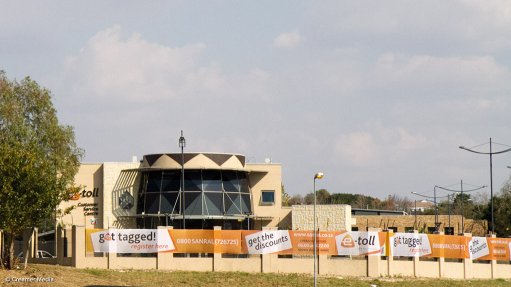
Photo by: Duane Daws
Transport Minister Dipuo Peters has published various amendments to the Gauteng e-Road regulations in the Government Gazette for public comment.
Among the proposed amendments was a requirement that “foreigners” now had to “comply with the provisions relating to the payment of tolls in accordance with that made known in the Government Gazette that apply to toll tariffs on the Gauteng Freeway Improvement Project (GFIP) toll roads and the Conditions for payment of tolls published by the [South Afircan National Roads] Agency [Limited] (Sanral) in terms of section 27(1)(b) of the [National Roads] Act”.
Justice Project South Africa (JPSA) this week said the proposed amendment implied that persons driving motor vehicles registered outside of South Africa had, up to the time that this provision took effect, been exempted from the so-called “user-pays principle” on the GFIP roads.
The JPSA said that, among its comments on the proposed amendments, it would question what mechanisms had or would be put in place to ensure that owners of vehicles registered outside of South Africa complied with these regulations.
“The way we see it, there are only two ways to ensure that this happens. One is to detain and prohibit them from leaving the country without paying their e-tolls and the other is to seek extradition orders for foreign vehicle owners who don’t pay within 120 days of passing under a gantry.
“Neither is a particularly practical solution and the question must be asked: What will happen if a ‘foreigner’ returning home cannot pay? Will that person be jailed until they have paid their ‘debt to society’ or will they be allowed 60 days to pay prior to an invoice being issued to them and upon failing to pay within 120 days, be extradited to stand trial?” the JPSA noted.
Meanwhile, another proposed amendment applied to the timeframes in which Sanral was compelled to issue an invoice to registered and nonregistered, or “alternative”, users.
The proposed amendments stated that this period was to be extended from 32 days to 60 days; however, the JPSA pointed out that the “seven days grace for payment” applicable to the tariffs for registered e-tag users and registered vehicle licence number users, as well as the “seven days grace for payment” applicable to standard tariffs had not been adjusted.
“The 51 days period referred to by the Minister of Transport in her budget vote speech on July 15, 2014, has, therefore, been extended to 60 days. It must be noted, however, that there is no compulsion for Sanral or its contractors to wait for a further 53 days to elapse after the seven days grace period has expired before issuing an invoice through their contacted-out Violations Processing Centre,” JPSA noted.